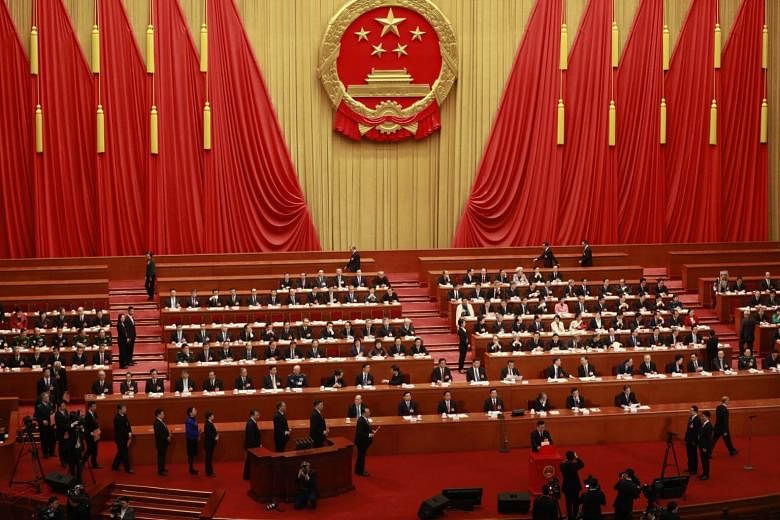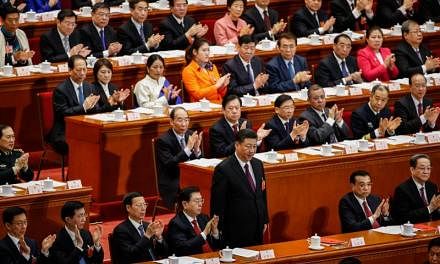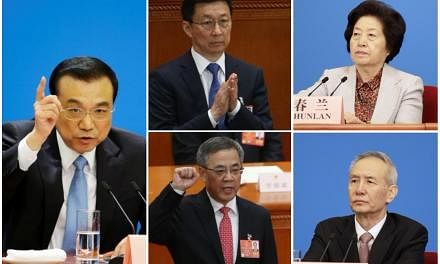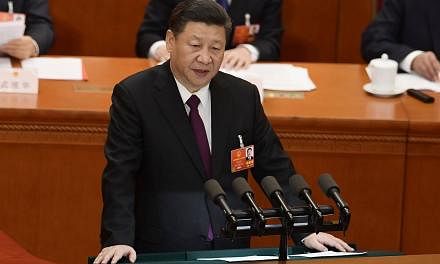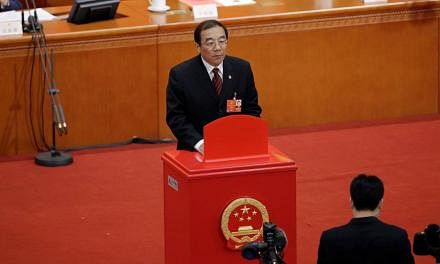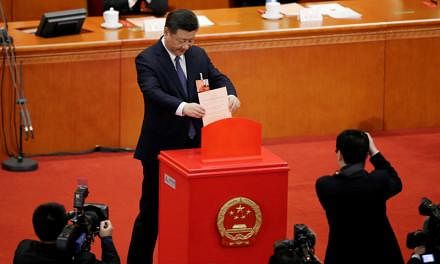BEIJING (REUTERS) - China will revise its criminal law to make way for a new anti-graft commission, a top Chinese lawmaker said on Monday (March 12), after legal scholars warned that the new law will leave suspects at risk of rights abuses.
A sweeping overhaul to China's anti-graft infrastructure is set to be finalised at the ongoing annual meeting of China's parliament, establishing a powerful new National Supervision Commission and extending oversight to all government employees.
The reform is the latest step in Chinese President Xi Jinping's multi-year war on graft, which he has vowed must continue until the power of officials at all levels has been locked inside a "cage" to prevent corruption.
Changes to China's state constitution, passed on Sunday, as well as a new supervision law to pass this week, have been criticised by legal scholars for failing to protect the rights of suspects during investigations.
Rights groups say the new supervision law will give detentions the veneer of legality, while still risking torture and rights abuses that they say plagued the old system.
After the supervision law is passed at this meeting, the standing committee of the parliament will make changes to the criminal procedure law so it fits with the new law, Mr Wang Shenming, vice-chairman of the judicial affairs committees of parliament, told reporters on the sidelines of the meeting.
"Only by doing this can there be harmony and unity between the laws," he said.
How much power China's prosecutor will have after the establishment of the new commission, and whether it will retain all its investigative powers, will be decided after these changes, he added.
The announcement is likely to be met with concern by critics of the latest draft of the supervision law who say that it should be amended to include aspects of the criminal law that protect suspects rights and improve requirements for evidence.
The current supervision law draft fails, for example, to ensure suspects have access to a lawyer during investigations.
The inclusion of such provisions to criminal law in 2012 were seen as making modest progress to combat long-standing issues such as miscarriages of justice and forced confessions.
Mr Xi's anti-graft campaign has made use of a secretive and controversial system of residential detention, which is outside the scope of China's criminal procedure law.
The president has pledged to reform the detention system as part of the establishment of the new supervision commission.
